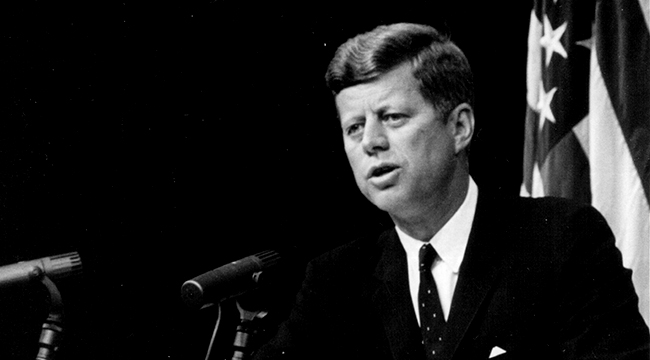
On Thursday evening, some of the last remaining files of the JFK assassination were released. Despite the Trump administration’s promises, the president did wind up blocking some files, which now have a new release date in April 2018. Even so, the archive is vast. 2,800 documents, many of which are hundreds of pages long and offer analysis of insignificant details, like what Lee Harvey Oswald was wearing on a bus ride to Mexico. Still, there are a few interesting tidbits researchers have found so far.
Much of the release, it has to be said, deals in things we’ve already known for decades. These include the CIA’s cartoonish plots to assassinate Castro, infighting between the FBI and CIA, the cringe-inducing mishandling of witnesses and evidence both before and after the assassination, the CIA’s relationship with mobster Sam Giacana, and so on. While it’s good for historians to have more primary sources about them, it’s not news. But the files do contain some intriguing new details:
- A British reporter was supposedly tipped off. The one note that will likely have conspiracy theorists buzzing is that a British reporter claimed to have gotten a strange phone call, 25 minutes before the assassination, to call the American embassy about some “big news.” Is that credible? Who knows? We’ve only got the reporter’s word for it, and even honest people can misread clocks or get their timeline wrong. But expect a lot of chatter over this.
- The police knew an attempt on Oswald’s life was coming. Throwing more chum into the waters, a memo from J. Edgar Hoover states that Dallas police got a call threatening Lee Harvey Oswald’s life from somebody claiming to be part of a committee organized to kill him. The Dallas police apparently didn’t take the threat seriously, marking yet another bumble in an investigation full of them.
- The Soviets were terrified. Perhaps not surprisingly, the Soviet Union was worried a rogue general would fire a missile off during the ensuing power vacuum as the nation was in disarray, and Lyndon B. Johnson was sworn in. It didn’t help that apparently the Soviets hadn’t bothered to research anything about Johnson, so he was a complete unknown. They were also worried about being blamed for the assassination and went on national alert in case the US used it as a pretext for military action. And we’ve learned more about what they thought of Oswald: Namely, that he was a “neurotic maniac” and completely untrustworthy.
- The FBI had some… unusual suspects. One of the more amusing, or perhaps disturbing, bits of the release, depending on your perspective, is a document detailing some of the potential threats against Kennedy and Johnson. Most of those threats are simply people protesting various actions of the administration. Some sound sort of dangerous. Others turned out to be fifth-graders, literally. They also heavily monitored the Communist Party in Dallas for years, it turns out. It had six members.
The one thing we don’t have? A definitive answer. And we likely never will. But, at least, we have a fuller, more complete grasp of what happened that fateful day in November and surrounding events.
